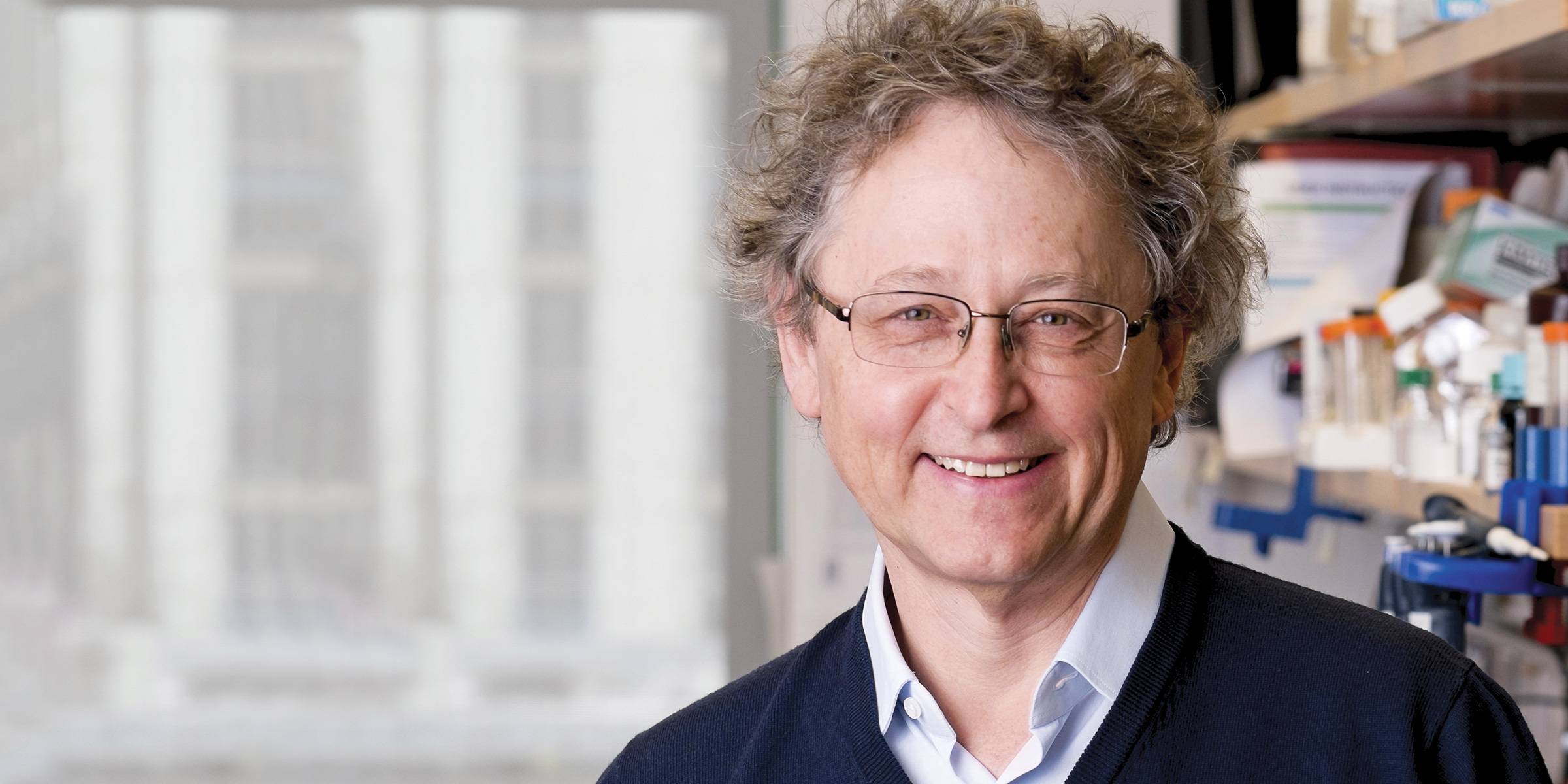Michel C. Nussenzweig, M.D., Ph.D.
Zanvil A. Cohn and Ralph M. Steinman Professor
Investigator, Howard Hughes Medical Institute
Senior Physician
- Laboratory of Molecular Immunology
Nussenzweig’s laboratory studies the molecular aspects of the immune system’s innate and adaptive responses using a combination of biochemistry, molecular biology, and genetics. For work on adaptive immunity, he focuses on B lymphocytes and antibodies to HIV-1, while his studies of innate immunity focus on dendritic cells. His work is leading to new antibody-based therapies for infections by HIV and the novel SARS-CoV-2 coronavirus, among other viruses.
The immune system protects vertebrates from a multitude of pathogens. Two types of immune responses have evolved to accomplish this task: one innate and the other adaptive. Adaptive immune responses are primarily carried out by cells called lymphocytes, which produce a diverse repertoire of immune receptors that recognize almost any antigen. Most of these receptors have relatively low affinity for their antigens and must be refined by somatic hypermutation and class switch recombination, yielding high-affinity antibodies that protect against most pathogens, including HIV-1. Hypermutation and selection occur in specialized micro-anatomical compartments called germinal centers. Nussenzweig’s laboratory investigates the molecular basis of such hypermutation and the selection for high-affinity antibody-producing cells in the germinal center.
Nussenzweig’s research aims to understand the rules that govern hypermutation and high-affinity antibody selection, with the goal of creating vaccines for pathogens such as HIV-1. As part of that effort, his laboratory has devised strategies to isolate, analyze, and produce highly potent human antibodies capable of neutralizing multiple HIV strains.
Nussenzweig has isolated such broadly neutralizing antibodies from HIV-infected patients whose immune systems had an exceptional ability to neutralize HIV in the blood. In clinical trials conducted at The Rockefeller University Hospital, two of these antibodies interfered with chronic HIV infection, driving the amount of virus in the blood to below detectable levels. And unlike traditional antiretroviral therapy, which requires daily dosing, the antibodies continue to provide protection and treatment for months after they have been administered, suggesting they might lead to long-term control of the virus. This work has helped establish a new paradigm for developing vaccines and therapies for infectious diseases. This paradigm has been extended to other viruses such as hepatitis B and flaviviruses.
In response to the COVID-19 outbreak, Nusssenzweig has extended this research to SARS-CoV-2 and is working to isolate and characterize highly potent neutralizing antibodies from patients who have recovered from the disease.
A second focus of Nussenzweig’s lab is on dendritic cells, which elicit adaptive immune responses by taking up antigens and presenting them to lymphocytes. Current studies focus on outlining the pathway of human dendritic cell development and differentiation.
Nussenzweig’s experiments are consistent with the notion that self-antigens taken up by dendritic cells induce tolerance, whereas antigens taken up in the context of activation stimuli, such as those found during inflammation or tissue destruction, induce prolonged T cell activation. During inflammation or infection, dendritic cells present self-antigens simultaneously with non-self-antigens. By establishing tolerance to self-antigens before challenge with pathogens, dendritic cells can focus the adaptive immune system entirely on the pathogen, thereby avoiding autoimmunity. The ability to target antigens to dendritic cells and control their function in vivo has significant implications for the development of vaccines and therapies for autoimmunity. Recently, the lab defined distinct progenitor lineages for classical spleen dendritic cells, plasmacytoid dendritic cells, and monocytes, a step toward antigen-specific targeting.
Nussenzweig is a faculty member in the David Rockefeller Graduate Program, and the Tri-Institutional M.D.-Ph.D. Program.
